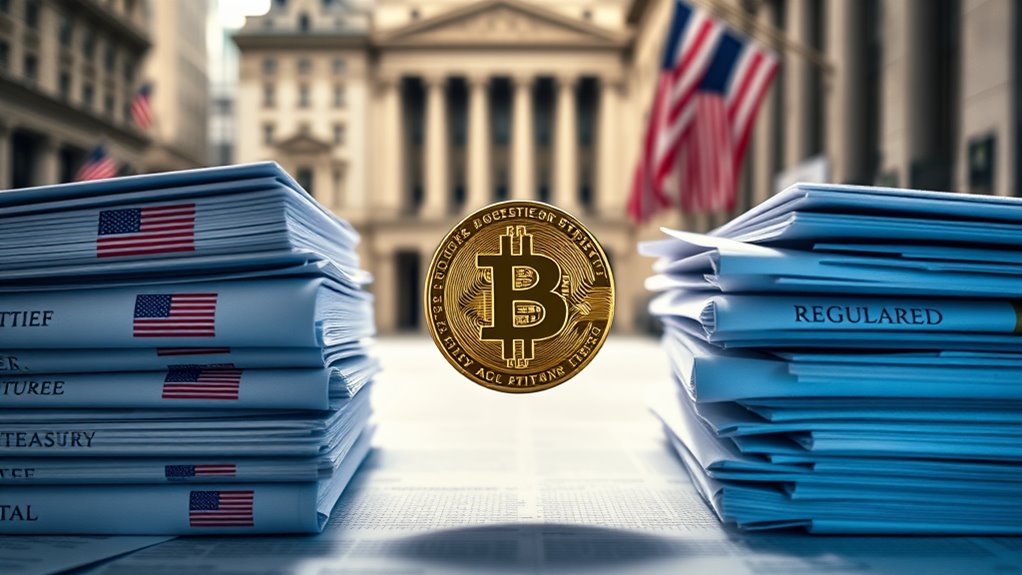Tether Eyes Regulatory Arbitrage: Will Trump Era Spawn US-Exclusive Stablecoin?
Note: This post may contain affiliate links, and we may earn a commission (with No additional cost for you) if you make a purchase via our link. See our disclosure for more info. The crypto world is constantly changing. This content is for informational purposes only and not financial, legal, or professional advice So, please verify the info on the cryptocurrency provider’s websites.
 stablecoin">
stablecoin">As the Trump administration pushes for faster stablecoin legislation, Tether is positioning itself to capitalize on what could be a regulatory sweet spot. The stablecoin giant sees an opening. Big time. With the House Financial Services Committee greenlighting the STABLE Act, which demands 100% reserves in “high-quality liquid assets,” Tether's strategy is becoming clearer by the day.
Trump's urging Congress to speed up stablecoin regulation isn't just random policy talk. It's about U.S. economic competitiveness. Or so they say. Meanwhile, Democrats are raising eyebrows about potential conflicts of interest, pointing to Trump-connected entities that might benefit disproportionately. Funny how that works.
Tether's reserve management has always been, well, interesting. They claim 56% in U.S. Treasury bills, 28% in commercial paper, and a mere 6% in actual cash. Not exactly the picture of stability some might expect. Remember when the CFTC caught them with insufficient reserves for 27.6% of days in 2016-2018? Yeah, that happened.
CEO Paolo Ardoino is now talking up Big Four audits like they're the hottest trend since crypto itself. “Totally doable under Trump's regulatory approach,” he insists. Never mind Tether's history of non-compliance with New York regulations and CFTC orders.
The STABLE Act isn't playing around. It demands reserve audits, anti-money laundering protocols, and actual consumer protections. Revolutionary concept in crypto, right? Tether's compliance history suggests they might find these requirements… challenging. Operating on multiple blockchain platforms since its 2014 launch has made Tether widely accessible but harder to regulate comprehensively.
Representative Maxine Waters and other Democrats have voiced strong opposition, warning that the legislation creates a dangerous precedent that could enrich insiders at the expense of ordinary investors.
What's clear is the regulatory arbitrage play. Avoid stricter global rules by cozying up to U.S. oversight. Smart. Maybe too smart. Their quarterly reporting still keeps significant details under wraps – like who's actually issuing those bonds they're holding.
If this works, we could see a U.S.-exclusive stablecoin emerge. The irony? The same company that paid millions in CFTC penalties could become a poster child for regulated crypto. Welcome to the wild world of stablecoins, where yesterday's violator is tomorrow's compliance champion.











